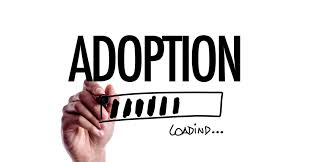


Introduction
Family Law Issues in Inter-country Adoption;
Intercountry and international adoptions have become increasingly common as families seek to provide loving homes to children across borders. However, these types of adoptions come with unique legal, cultural, and procedural challenges that require careful navigation. This article provides a comprehensive overview of the key family law issues involved in intercountry and international adoptions, offering insights into the legal framework, the rights and responsibilities of adoptive parents, and the best practices for ensuring a successful adoption process.
Adopting a child is often regarded as one of the most selfless and life-changing decisions a person or couple can make. When that decision crosses borders, however, the process becomes not only emotionally demanding but also legally complex. Intercountry and international adoptions are governed by a wide spectrum of laws, treaties, and policies—both domestic and international—that create a labyrinth of legal requirements.
For prospective adoptive parents, agencies, and even the children involved, these family law issues are central to ensuring that adoptions are conducted ethically, transparently, and with the child’s best interests at heart. The need to balance humanitarian intentions with rigid legal frameworks makes intercountry adoption a particularly nuanced field within family law.
As the world becomes increasingly interconnected, the number of families pursuing adoption beyond their national boundaries continues to grow. Families often look abroad due to factors such as infertility, the desire to provide a better life for children in orphanages, or a connection to a specific culture or country. However, with this noble intent comes a need to understand and navigate through a matrix of legal systems.
Every country has unique statutory requirements, cultural considerations, and administrative processes that can greatly influence the outcome of an international adoption. Understanding these intricacies is not only essential for success but also helps prevent illegal or unethical practices, such as child trafficking or coercion of birth parents.
One of the central legal instruments guiding intercountry adoption is the Hague Convention on Protection of Children and Co-operation in Respect of Intercountry Adoption, commonly known as the Hague Adoption Convention. This treaty provides safeguards to ensure that adoptions take place in the best interests of the child and helps to prevent abduction, sale, or trafficking. Countries that are parties to the Hague Convention must follow specific procedural rules, including accreditation of adoption agencies, the establishment of a central authority, and transparent processes for consent and matching. However, not all countries are signatories, and this creates a disparity in legal procedures that can make the process unpredictable and, in some cases, risk-laden.
Within the context of Nigerian law, family law issues in intercountry adoption are particularly complex due to a combination of statutory, customary, and Islamic legal influences. Nigeria is not a party to the Hague Convention, which means that its procedures do not follow the standardized safeguards outlined by the treaty. Instead, adoption in Nigeria is governed by the Child Rights Act 2003 (in states where it is domesticated), the Adoption Laws of various states, and sometimes Sharia law in northern regions.
This legal fragmentation makes it imperative for prospective adoptive parents to seek expert legal advice when considering adopting a Nigerian child. The adoption process generally requires a residence period, court approval, and various certifications to ensure the adoptive parents are suitable guardians. For international adoptions, there is often the added hurdle of immigration and nationality laws from the adoptive parents’ country of residence.
Family law issues also include concerns over the validity and recognition of adoptions across different jurisdictions. For example, a child adopted in Nigeria may not automatically be recognized as legally adopted in the United States, United Kingdom, or Canada unless certain legal criteria are met. These include proper documentation, post-adoption evaluations, and sometimes even re-adoption or legal guardianship proceedings in the adoptive parents’ home country. Failure to comply with these requirements can result in devastating consequences, such as denial of entry for the adopted child, loss of parental rights, or annulment of the adoption.
Moreover, the emotional and psychological dimensions of intercountry adoption cannot be overlooked. While the law focuses on procedures, eligibility, and compliance, the human aspect deals with trauma, identity, and cultural integration. Children adopted from another country often grapple with a dual identity, feelings of abandonment, and challenges in adjusting to a new culture.
These factors have led many jurisdictions to incorporate post-adoption support services and counseling as part of the adoption framework. However, the extent and quality of these services vary significantly between countries and are often insufficient to address deep-seated emotional needs.
Another pressing family law issue is the matter of consent. In many developing countries, birth parents may give up their children under economic duress or due to misinformation about the nature of adoption. Ethical adoption practices require that consent be given freely, in full knowledge of the consequences, and without any coercion. Legal safeguards must be put in place to ensure that parents understand their rights and that children are not treated as commodities. This is an area where international law must work hand-in-hand with domestic legal systems to uphold the dignity of all parties involved.
Ultimately, navigating family law issues in intercountry and international adoptions demands a holistic understanding of both legal and human elements. It is a journey that requires diligence, patience, and an unwavering commitment to the child’s well-being. With growing scrutiny on international adoptions, especially in cases of fraud and child trafficking, it becomes all the more crucial to ensure that legal procedures are followed meticulously and ethically. While laws and policies provide the skeleton of the adoption process, it is the implementation, transparency, and respect for human rights that breathe life into it.
Understanding Intercountry and International Adoption
Intercountry adoption involves adopting a child from a country other than your own, governed by international laws, treaties, and the domestic laws of both the adoptive and child’s home countries. International adoption typically refers to any adoption involving parties from different nations, regardless of the adoption process.
The process of adopting a child internationally is often governed by treaties such as the Hague Convention on Protection of Children and Co-operation in Respect of Intercountry Adoption. This treaty establishes safeguards to ensure that adoptions are in the best interests of the child and that safeguards are in place to prevent child trafficking and exploitation.
Legal Framework Governing Intercountry Adoption
- The Hague Convention: The Hague Convention is the principal international treaty governing intercountry adoptions. It establishes international standards for adoption processes, ensuring that adoptions are ethical and transparent. Under this convention, adoptions must be carried out in the child’s best interests, with the child’s welfare taking precedence.
- Domestic Adoption Laws: Both the adoptive parents’ country and the child’s country have specific domestic laws that must be complied with. These laws regulate the eligibility of adoptive parents, the legal status of the child, and procedural requirements. Understanding and complying with these laws is crucial to avoid legal complications.
- Immigration Laws: In addition to adoption laws, immigration laws play a significant role in intercountry adoptions. Adoptive parents must ensure that their adopted child can legally enter and reside in their home country. This often involves navigating complex visa and residency requirements, which can vary significantly between countries.
Key Family Law Issues in Intercountry Adoption
- Eligibility of Adoptive Parents: Different countries have varying eligibility criteria for adoptive parents, including age limits, marital status, financial stability, and health conditions. Prospective parents must meet the requirements set by both their home country and the child’s country of origin.
- Consent and Parental Rights: Obtaining proper consent from the child’s biological parents or legal guardians is a critical aspect of intercountry adoption. The adoption must be free from coercion, and the biological parents’ rights must be fully relinquished before the adoption can proceed. In some cases, biological parents may have the right to reclaim the child within a specified period.
- Adoption Procedures: The procedures involved in intercountry adoption can be lengthy and complex, often involving multiple legal steps, home studies, background checks, and the preparation of comprehensive documentation. Adoptive parents may need to work with licensed adoption agencies that are accredited in both countries.
- Cultural and Ethical Considerations: Adoption across borders often involves children from different cultural, ethnic, or religious backgrounds. Adoptive parents must be sensitive to these differences and prepared to honor the child’s heritage. Ethical issues, such as ensuring the adoption is not influenced by financial incentives or coercion, are also paramount.
- Adoption Costs: The costs associated with intercountry adoption can be substantial, including agency fees, legal fees, travel expenses, and visa fees. Prospective parents should be aware of these costs and budget accordingly, ensuring that all expenses are transparent and properly documented.
- Post-Adoption Support and Adjustment: Once the adoption is finalized, families may face challenges in helping the child adjust to a new culture, language, and environment. Post-adoption support, including counseling and educational resources, can be critical in ensuring the child’s successful integration into the family.
- Legal Recognition of Adoption: Ensuring that the adoption is legally recognized in both the adoptive parents’ country and the child’s home country is essential. This may involve re-adopting the child under the adoptive parents’ domestic law to secure full legal parental rights.
- Citizenship and Naturalization: Adopted children may need to go through processes to obtain citizenship or permanent residency in the adoptive parents’ country. This process can vary widely and may require additional legal steps, such as readoption or filing for naturalization.
- Adoption Disruption and Dissolution: Although rare, some adoptions do not work out, resulting in disruptions or dissolutions. Families need to be aware of the legal implications of such situations and seek appropriate legal and psychological support.
- Child’s Right to Know Their Origins: Children adopted internationally may have the right to know their biological origins, especially as they grow older. Adoptive parents should be prepared to provide information about the child’s birth family and cultural background when appropriate and legally permissible.
Best Practices for Navigating Intercountry Adoption
- Engage Accredited Agencies and Legal Professionals: Working with accredited adoption agencies and experienced legal professionals familiar with both countries’ laws can mitigate many risks associated with intercountry adoption.
- Thoroughly Research and Understand the Process: Prospective adoptive parents should educate themselves about the legal requirements, the child’s background, and potential challenges involved in international adoption.
- Prepare for Cultural Integration: Adoptive parents should make a concerted effort to honor the child’s cultural heritage and help them maintain a connection to their roots.
- Ensure Compliance with All Legal Requirements: Parents must comply with the legal requirements of both countries throughout the adoption process, including completing all necessary documentation and court procedures.
- Plan for Post-Adoption Support: Establishing a support network, including counseling and peer groups, can help the adopted child and the family adjust to their new life together.
Conclusion
Navigating the complex landscape of intercountry and international adoptions requires a deep understanding of both domestic and international laws, as well as a commitment to the child’s best interests. By being well-informed and working with experienced professionals, adoptive parents can ensure a smoother adoption process and provide a loving, stable home for their new child. The journey may be challenging, but the reward of building a family that transcends borders is immeasurable.
As we draw closer to understanding the multifaceted nature of family law issues in intercountry and international adoptions, one thing remains abundantly clear: adoption is not merely a legal act, but a deeply personal, ethical, and often spiritual journey that binds families across borders. Yet, this journey is increasingly encumbered by legal intricacies that require sharp attention, cultural sensitivity, and, above all, unwavering adherence to the rule of law. The process involves not only meeting legal requirements in both the sending and receiving countries but also safeguarding the child’s welfare through consistent and transparent legal oversight.
In a world where international mobility and cross-cultural relationships are on the rise, legal systems must evolve to protect the most vulnerable — the children. Intercountry adoption laws are no longer solely domestic affairs; they are part of a larger global framework where sovereignty must be balanced with international cooperation. For countries like Nigeria, where adoption laws vary between states and are influenced by multiple legal systems, it becomes vital to streamline and harmonize these laws in line with international best practices.
Although Nigeria is not a signatory to the Hague Adoption Convention, aligning its practices with the Convention’s principles can help reinforce legal credibility, minimize exploitation, and ensure that adopted children are provided with the best chance at life in their new homes.
The implications of failing to adequately address family law issues in intercountry adoption are profound. Without rigorous oversight, children may be moved across borders without clear legal standing, exposing them to statelessness, trafficking, or even adoption reversals.
For adoptive parents, the emotional and financial investment made during the process can be irreversibly damaged by a legal misstep or an oversight in documentation. And for birth families, there remains the risk of being coerced or misinformed into relinquishing their rights, only to discover later that they were misled. Such outcomes highlight the necessity of legal clarity, ethical standards, and procedural consistency.
Governments, non-governmental organizations, and legal practitioners have a shared responsibility to uphold the integrity of the adoption process. From the moment a child is considered eligible for adoption, to the time they are fully integrated into their new family, every step must be documented, legally vetted, and ethically justified.
Adoption is more than just a process of paperwork; it is a lifelong commitment that reshapes identities, builds families, and transforms lives. The legal system must act not as a barrier, but as a gatekeeper of integrity, ensuring that only those with genuine intentions and legal capacity are allowed to adopt.
Moreover, as the global conversation around children’s rights gains momentum, nations must begin to rethink and revise outdated adoption laws that no longer serve the best interests of the child. Legislative reform is essential to remove procedural bottlenecks, eliminate corruption, and introduce modern safeguards such as mandatory home studies, psychological evaluations, and post-placement monitoring. Such reforms will not only help protect children but will also enhance international cooperation and trust between countries involved in cross-border adoption arrangements.
Adoptive families must also take it upon themselves to be thoroughly informed and prepared. Legal knowledge, cultural sensitivity, and post-adoption support are crucial components of successful adoptions. It is not enough to bring a child into one’s home; one must also ensure that the child grows up in a supportive, legally secure, and culturally respectful environment. When adoptive parents are equipped with the right information and resources, they are better positioned to advocate for their child’s needs and defend their legal status both at home and abroad.
As international adoptions continue to evolve in complexity, so too must our legal and ethical responses. The path to adoption may be long and demanding, but when approached with integrity, it can yield extraordinary rewards—not only for the child and the adoptive family but for the broader society that benefits from stable, loving homes. Navigating family law issues in intercountry and international adoptions may seem daunting, but with the right legal guidance, informed policies, and a commitment to justice, it is possible to transform this process into one that truly honors the spirit of family, compassion, and international cooperation.
. Intercountry Adoption
. International Adoption
. Hague Convention
. Adoption Laws
. Family Law Issues
. Parental Rights
. Adoption Procedures
. Legal Recognition of Adoption
. Citizenship and Naturalization
. Post-Adoption Support
Contact Us
Chaman Law Firm today. Our offices are conveniently located in Lagos, FCT Abuja, Ogun State, and the UK. We are readily available to assist you with your legal needs. Whether you require consultation, representation, or ongoing legal support, Chaman Law Firm is your trusted partner.
Call us at 08065553671 or email us at info@chamanlawfirm.com to schedule a consultation


